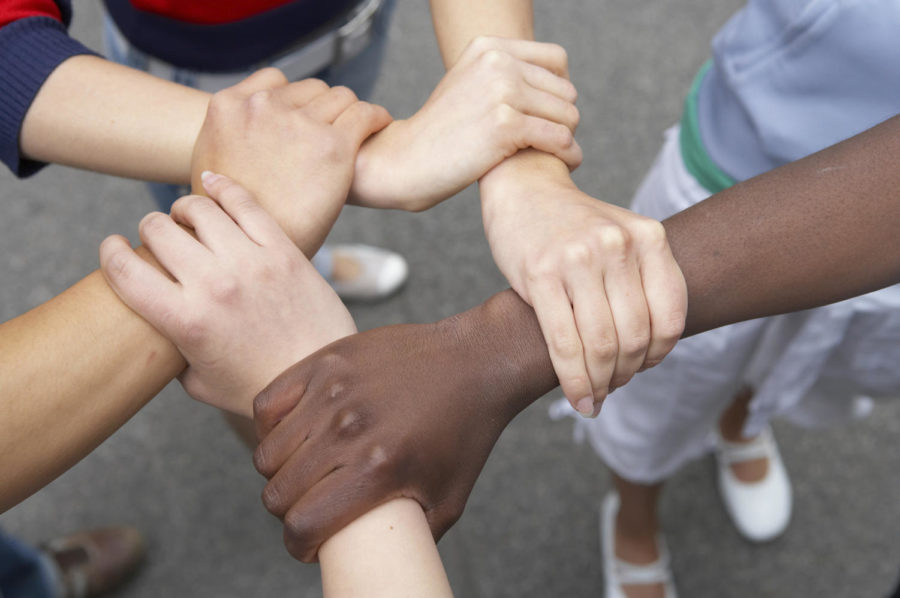Abalu: Overcome racism, stereotypes
February 23, 2015
From a very young age, we are taught basic qualities about our gender, race, history, et cetera. We grow up with these ideals and values and they typically shape how we view ourselves and others in the world.
Some of these stereotypes affect us positively, while some end up causing more harm than good. Two common stereotypical categories fall under race and gender.
Different cultures and countries have different expectations for how men and women should appear and/or behave. Common stereotypes for men include being strong, aggressive, dominant, independent, powerful, successful, breadwinners, et cetera. Stereotypes for women include being weak, dependent, motherly, sexual objects, emotional, et cetera.
Basically, men and women are viewed as total opposites.
In modern society, the characteristics assigned to being feminine cannot be portrayed by a man and vice versa. This is where the notion of double standards comes into play and places limitations on many people.
When I was growing up, one of the main things my dad emphasized was that I needed to learn how to cook because no man would want to marry me if I did not know how to prepare a decent meal.
My sister was stubborn about this because she believed she did not have to learn to cook for any man and the most important thing would be the abilty to cook for herself. She challenged this stereotype assigned to women.
I learned how to cook with the idea that I would be able to easily find a husband in the future because of this skill. Although I am stuck with this teaching, I realized it takes so much more than cooking to eventually find a husband.
Nowadays, many men have adopted the habit of cooking themselves. It is no longer considered solely to be a woman’s job. But many people still hold that ideology very strongly because it had always been viewed that way in the past.
During a TED talk, Tony Porter talks about asking a 12-year-old boy how he would feel if his coach says he plays like a girl in front of all the other players. The boy said that it would destroy him.
“If it would destroy him to be called a girl, what are we then teaching him about girls?” Porter said.
Men are portrayed as superior, while women are inferior. Why does it have to be a big deal when a woman is a top leader, executive or CEO in a company or work place? Why do women have to work twice as hard as men in order to prove a point that women are just as capable? Why is it odd seeing a woman doing something that is widely recognized as a ‘man’s job?’ These are the effects of stereotypes and biases that are difficult to disregard.
During another TED talk, Nigerian author Chimamanda Adichie talks about how everyone should be feminists and the effects of stereotypes in the society we live in.
“We say to girls, ‘you can have ambition, but not too much. You should aim to be successful, but not to successful. Otherwise, you will threaten the man,’” Adichie said.
It is really not just a man’s world. I believe men and women have more similarities than differences, but we place too much emphasis on the differences, which form the foundation of our biases.
As people try to break away from these stereotypes, it becomes more difficult because society has taught us what should and should not be and we have carried these teachings with us for so long. I feel people believe it is just the way things have to be.
When it comes to racial stereotypes, I think mostly of black versus white. In Nigeria, I was not accustomed to racial disparities, even though my skin is considered to be lighter than a typical Nigerian’s complexion. I stood out but I was still accepted in my own community.
It wasn’t until I arrived in the U.S. when I noticed how people make it so obvious how much different you are. It was the same time when I recognized that you get treated differently in some contexts for looking different than others.
This might also be the case in some other countries.
Just recently, after a soccer match between Chelsea and PSG in Paris, some people were on their way to the Paris metro station. As they boarded the train, some Chelsea supporters, who happened to be English, prevented a black man from entering the train by constantly pushing him out.
The group started chanting, “We’re racist, we’re racist, and that’s the way we like it.”
As a white person, how comfortable would you be in a room full of black people? As a black person, how comfortable would you feel in a room full of white people?
I have found that many of us are usually associated with people who are similar to us and we find it easier to relate to those people from an early stage.
We take into account how different we are. I will consciously take note when I am the only black person in one of my classes. I will also consciously take note when I see an ad and look to see if a black person was included in it. I do this in so many contexts because I have become alert about noticing these racial differences.
Racism and stereotypes cannot be completely eradicated, but they can be reduced and avoided. If you are scared of things that are unknown or different to you, step toward those fears in order to overcome them. Now, I am not saying put yourselves in danger, I am just saying we need to challenge ourselves and step out of our comfort zones at least once in order to experience a different side of things and better understand people and situations.







